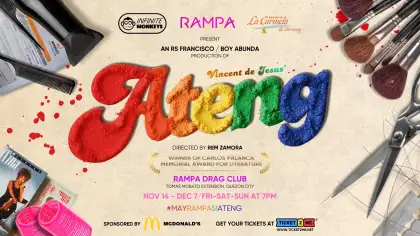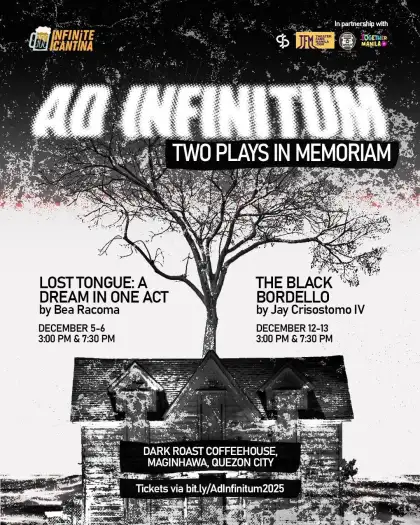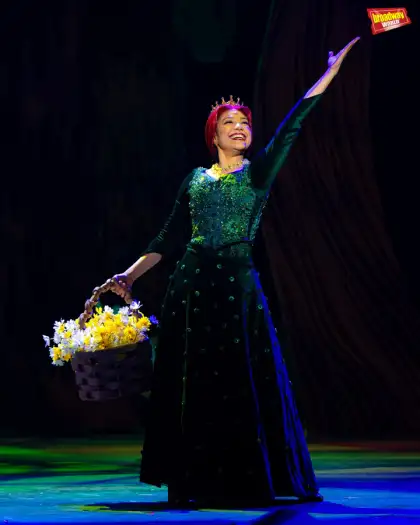Carl Joseph Papa on Navigating Queer Experiences in Stories and Films

Filipino queer cinema has been ever-so-vibrant. From the iconic “Markova: Comfort Gay,” which starred Comedy King Dolphy, to the coming-of-age indie film “Billie and Emma,” which tugged at our heartstrings, Philippine cinema has so far done a graceful job at representing the LGBTQIA+ community, but there’s no denying that there are still much more stories that need to be told.
Adding to the roster of bright filmmakers in Philippine queer cinema is Carl Joseph Papa, the mind behind Cinemalaya 2023’s Best Film, “Iti Mapukpukaw (The Missing)." The then-software engineer, with his passion for animation and films, is on his way to becoming one of the most acclaimed film directors in the country.
“I really wanted to draw and to tell stories. When I was in high school, I wanted to make films, but filmmaking wasn’t that accessible when we were young,” Carl shared how his passion for the craft developed. He revealed that this love for film started when he was a student, but it was only in adulthood that he got to dive into it when he managed to save up to buy a camera.
Papa had already been lurking in the industry around 2010, initially producing short, animated films. In 2014, the filmmaker began to get into feature films with “Ang 'Di Paglimot ng Mga Alaala (The Unforgetting),” and with a nudge from his friends and colleagues, he began making more movies, such as “Manang Biring” and “Love Bites.”
But it wasn’t until 2023 that he had his big break. In that year, his Filipino-Ilocano queer animated film “Iti Mapukpukaw” won Best Film, among other accolades, at Cinemalaya, one of the country’s biggest independent film festivals. It was also submitted for consideration at the prestigious 96th Academy Awards last year for the Best International Feature Film Category.
The film tells the story of Eric, an animator who is dealing with the trauma he got from past experiences with his now-deceased uncle and the arrival of a familiar “alien” who wishes to take him.
Centered on themes of trauma and fear, “Iti Mapukpukaw” was personal to Papa. Drawn from his own past traumatic experience, he wrote the story as his way of coping with it.
“The film was [my] coping mechanism for what happened, kasi parang wala na 'kong magawa about it (because I can’t do anything about it anymore). So sinulat ko siya (I wrote it) to deal with things.”
He went on to share that the first few drafts of the film were “dark and angry,” but later he decided to express the story differently.
“I thought about it, ‘If people are going to watch this film, ano ba ‘yung gusto ko iparamdam sa kanila (what would I want them to feel)?’ I wanted the film to be like a hug, yakap sa ibang mga Eric sa mundo (a hug to all the Erics of the world). Do’n nag-iba ‘yung direction ng story (That’s when the direction of the story changed).”
With this, “Iti Mapukpukaw” made its place as one of today’s most significant queer films in Filipino cinema.
“[The queer community is not yet] properly, totally, well-represented, but we’re getting there,” said Papa on the LGBTQIA+ representation in the Philippines’ film industry.
According to him, giving depth to queer characters and showcasing the different faces of queer people could greatly help represent the community, but it is still up to filmmakers and artists like him to further this cause.
“In a way, mayroonsiyang cultural na pananagutan na ipakita natin ‘yung (our [art] has the cultural responsibility to represent the) [queer] community the right way,” he stressed.
He also said that while the queer community is widely represented in the indie space, this may not always be the case for the mainstream film industry, especially because of the country’s conservative ideals.
Amid this, Papa holds out hope for the Filipino queer cinema, “Papunta na tayo do’n. Mas nage-explore ang Philippine cinema ngayon compared sa dati... Sana ‘yung medyo mainstream, maikwento din ‘yung mga kwento ng queer people nang mas tama at hindi ‘yung stereotyped (We're getting there. The Philippine cinema has been exploring more today than before...I hope mainstream cinema features more queer people's stories more accurately and not perpetuate stereotypes).”

On the future of the Filipino queer community, Papa said, “The future is bright. But I wish mas mabilis sana ‘yung progress natin (our progress was faster). There are factors holding us back, but there are a lot of people fighting, so there is progress.” he added.
Even with the Filipino queer film scene's massive progress, it still has a long way to go. Papa’s “Iti Mapukpukaw” is not only paving the way for more queer stories to be told on the big screen but is also inspiring those who wish to do the same.
“Brave it out. ‘Wag ka makinig sa sinasabi ng iba (Don’t listen to what others say). The only way for you to know that you can do it is if you do it.”
Learn more about Carl Joseph Papa and his work by following him on X (formerly Twitter). You can also stream “Iti Mapukpukaw” on Netflix.
Get the latest curated content with The Beat Asia's newsletters. Sign up now for a weekly dose of the best stories, events, and deals delivered straight to your inbox. Don't miss out! Click here to subscribe.














































































